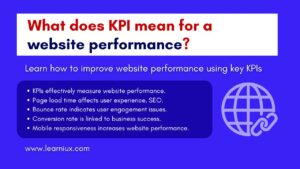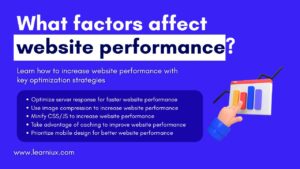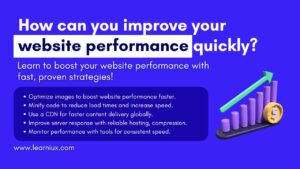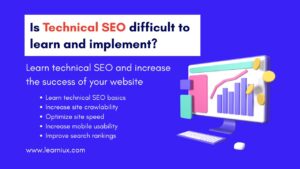Introduction
Understanding what a good SEO score is is crucial for anyone trying to increase their website’s performance in search engine results. SEO score measures how well a website is optimized to rank high on search engines like Google, which directly impacts its visibility, traffic, and user engagement. This comprehensive guide delves deep into the components of a strong SEO score, offering practical strategies to enhance your website’s optimization. By focusing on key areas like content, technical performance, and user experience, you can achieve a competitive SEO score that drives organic growth.
Understanding SEO Score
A SEO score is a numerical value, usually on a scale of 0 to 100, that reflects a website’s level of optimization based on search engine criteria. Tools like SEMrush, Ahrefs, Moz, and Google Search Console evaluate factors like content quality, keyword usage, site speed, and backlink profile to assign this score. A high SEO score indicates that your website is well-aligned with search engine algorithms, making it more likely to appear on the first page of search results. For website owners, bloggers, and digital marketers, understanding and improving this score is essential to staying competitive in the online space.
The importance of an SEO score lies in its ability to highlight strengths and weaknesses in your website’s optimization. A good SEO score not only improves rankings but also increases user trust and engagement. For example, a well-optimized site with a high SEO score is more likely to attract organic traffic, reduce bounce rates, and convert visitors into customers. By regularly monitoring your SEO score, you can identify areas for improvement and adapt to evolving search engine algorithms.
Key Factors That Affect SEO Score
A number of key factors contribute to a website’s SEO score. Each plays a unique role in determining how search engines view and rank your site. By optimizing these factors, you can significantly improve your SEO score and overall online presence.
Content Quality and Relevance
High-quality content is the cornerstone of a strong SEO score. Search engines prefer websites that offer valuable, relevant, and engaging content that is tailored to user intent. To get a good SEO score, make sure your content is original, well-researched, and addresses the needs of your target audience. Include the keyword “SEO score” naturally in your text, avoiding overuse, which can lead to penalties for keyword stuffing. For example, blog posts, articles, and landing pages should provide actionable insights, answer common questions, or solve specific problems.
Additionally, content should be structured for readability. Use short paragraphs, bullet points, and subheadings to make information easier to digest. Including multimedia such as images or videos can increase engagement, which can indirectly increase your SEO score by keeping visitors on your site longer. Updating content regularly to reflect current trends or new information also signals to search engines that your site is active and relevant.
Technical SEO Optimization
Technical SEO focuses on the backend components of a website that affect its performance and crawlability. A technically sound website is essential for achieving a high SEO score. Key aspects include:
- Site Speed: Fast-loading pages improve the user experience and are favored by search engines. Use tools like Google PageSpeed Insights to identify and fix speed-related issues.
- Mobile-Friendliness: With mobile-first indexing, your website should be responsive and easy to navigate on smartphones and tablets.
- Secure Connections: Implementing HTTPS ensures secure data transfer, increasing both user trust and your SEO score.
- Clean URL Structure: Use descriptive, keyword-rich URLs that are easy for search engines to understand.
- Proper Indexing: Ensure search engines can crawl and index your pages using a well-organized sitemap and robots.txt file.
Promptly resolving technical issues through regular audits can prevent a decline in your SEO score and maintain consistent performance.
On-Page SEO Elements
On-page SEO involves optimizing individual pages to rank higher and attract relevant traffic. These elements directly impact your SEO score and include title tags, meta descriptions, headers, and image optimization. For example, including the keyword “SEO Score” in your title tags and meta descriptions shows relevance to search engines while encouraging users to click. Headers should also include keywords in appropriate places to reinforce the topic, like this h2 section.
Other on-page elements include proper keyword density, internal linking, and alt text for images. Internal links guide users to relevant content, increasing the time spent on your site, while alt text improves accessibility and helps search engines understand image content. By optimizing these elements, you create a consistent and search-friendly page that contributes to a high SEO score.
Backlinks and Domain Authority
Backlinks, or inbound links from other websites, are a powerful factor in determining your SEO score. High-quality backlinks from authoritative sites signal to search engines that your content is trustworthy and valuable. For example, a backlink from a reputable industry blog carries more weight than a backlink from a lower-quality site. To improve your SEO score, focus on gaining backlinks through strategies like guest posting, creating shareable content, or collaborating with influencers.
Developed by Moz, Domain Authority is also tied to backlinks and reflects the overall credibility of your website. High domain authority is associated with a good SEO score, as it indicates a strong, trustworthy site. Use tools like Ahrefs or Moz to monitor your backlink profile and weed out low-quality links that could be hurting your score.
User Experience and Engagement Metrics
User experience (UX) is increasingly important for achieving a good SEO score. Search engines analyze metrics like bounce rate, time on page, and click-through rate to measure how users interact with your site. A low bounce rate and high time on page indicate that visitors find your content engaging, which has a positive impact on your SEO score. To enhance UX, focus on intuitive navigation, clear calls-to-action, and visually appealing design.
Engagement metrics also extend to mobile usability and accessibility. For example, a website with large, easy-to-tap buttons and fonts that are readable on mobile devices will retain users longer, which will improve its SEO score. Regularly test your site’s UX across all devices to ensure a consistent experience for all visitors.
What is a good SEO score?
A good SEO score typically falls between 70 and 85 on a 100-point scale, although this can vary depending on the tool used. Scores above 85 are considered excellent, indicating a highly optimized website that ranks well for competitive keywords. Scores below 70 indicate areas for improvement, such as technical errors or weak content. Achieving a good SEO score requires consistent effort across all optimization factors, from content to technical performance.
Industry-specific benchmarks also play a role. For example, websites in competitive niches like finance, health, or technology may need scores above 80 to rank prominently, while less competitive industries may see strong results with scores around 70. To set realistic goals, analyze your competitors’ SEO scores using tools like SEMrush or Ahrefs and aim to match or exceed their performance.
Strategies to Improve Your SEO Score
Improving your SEO score requires a combination of short-term improvements and long-term strategies. Below are actionable steps to increase your website’s optimization and achieve a higher score.
Conduct a comprehensive SEO audit
Regular SEO audits are essential to identify issues that are lowering your SEO score. Tools like Google Search Console, Screaming Frog, or SEMrush can identify technical errors, broken links, or content gaps. For example, an audit can reveal duplicate content or missing meta tags, both of which can hurt your SEO score. Address these issues promptly and schedule monthly or quarterly audits to monitor performance.
Increase Mobile Optimization and Site Speed
With mobile devices becoming a significant portion of web traffic, mobile optimization is a no-brainer for a good SEO score. Use responsive design to ensure your site adapts to different screen sizes, and test mobile usability with Google’s mobile-friendly test. Additionally, prioritize site speed by compressing images, minifying CSS and JavaScript, and leveraging browser caching. A fast, mobile-friendly site not only improves user satisfaction, but also boosts your SEO score.
Update and expand content
Fresh, relevant content keeps your website competitive and supports a strong SEO score. Regularly update existing pages to reflect new information or trends, and publish new content to target additional keywords. For example, creating in-depth guides or blog posts that include the keyword “SEO score” can attract more traffic and signal relevance to search engines. Use analytics to identify underperforming pages and refresh them with updated information or better optimization.
Build a Strong Backlink Profile
Getting high-quality backlinks is a proven way to improve your SEO score. Focus on creating valuable content like infographics, case studies, or research reports that other websites want to link to. Reach out to industry blogs for guest posting opportunities or collaborate with influencers to increase the reach of your content. Monitor your backlink profile regularly to make sure the links are coming from reputable sources, as low-quality backlinks can negatively impact your SEO score.
Optimize for User Intent
Aligning your content with user intent is crucial for a high SEO score. Study what your audience is looking for and tailor your content to meet those needs. For example, if users are searching for “how to improve SEO score,” create detailed guides or tutorials that provide step-by-step advice. Use tools like Google’s Keyword Planner or AnswerThePublic to identify relevant queries and incorporate them into your content strategy.
Common Mistakes That Hurt SEO Score
Even properly optimized websites can make mistakes that lower their SEO score. Common pitfalls include:
- Keyword Stuffing: Overuse of “SEO Score” or other terms can lead to penalties from search engines. Aim for natural, reader-friendly keyword placement.
- Ignoring Technical Issues: Unresolved errors like broken links, slow load times, or missing sitemaps can lower your SEO score.
- Ignoring User Experience: A cluttered design or poor navigation can increase bounce rates, which indicates to search engines that your site is not user-friendly.
- Low-Quality Backlinks: Links from spammy or irrelevant sites can hurt your SEO score and domain authority.
By avoiding these mistakes and proactively addressing issues, you can maintain a strong SEO score over time.
Tools to Monitor and Improve SEO Score
Several tools can help you track and increase your SEO score. Each tool offers unique features to analyze different aspects of your website’s performance.
- SEMrush: Provides comprehensive SEO audits, keyword research, and competitor analysis to improve your SEO score.
- Ahrefs: Excellent at backlink analysis and content optimization, helps you build a strong SEO score through link-building strategies.
- Moz: Offers detailed SEO score reports, domain authority metrics, and actionable recommendations.
- Google Search Console: Tracks search performance, indexing issues, and technical errors that affect your SEO score.
- Google Analytics: Monitors user behavior metrics like bounce rate and time on page, which impact your SEO score.
Use a combination of these tools to get a complete picture of your website’s SEO health and implement targeted improvements.
Adapting to Search Engine Algorithm Updates
Search engine algorithms are constantly evolving, which affects how good SEO scores are achieved. It’s important to stay informed about updates from Google, Bing, or other platforms to maintain optimization. For example, recent updates have emphasized user experience metrics like Core Web Vitals, which measure loading speed, interactivity, and visual consistency. By aligning your website with these priorities, you can maintain a high SEO score even as the algorithm changes.
Subscribe to industry blogs, attend webinars, or follow SEO experts on platforms like X to stay up to date on trends. Implementing changes quickly, such as optimizing for new ranking factors or adjusting content strategies, ensures that your SEO score remains competitive.
Measuring Long-Term Success
Achieving a good SEO score is not a one-time task, but an ongoing process. Track your progress over time by setting specific goals, such as increasing your SEO score by 10 points in six months. Use analytics to measure improvements in organic traffic, keyword rankings, and conversion rates, as these metrics reflect the impact of a high SEO score.
Compare your performance with your competitors to gauge your position in your niche. For example, if your SEO score is 75 but your competitors’ average is 85, focus on closing the gap through targeted optimization. Consistent efforts and data-driven adjustments will lead to long-term success.
Conclusion
A good SEO score is a reflection of a well-optimized website that balances content quality, technical performance, and user experience. By focusing on key factors like relevant content, technical SEO, backlinks, and user engagement, you can achieve a score of 70 to 85, or even higher, for competitive industries. Regular audits, mobile optimization, and strategic content updates are essential to improving and maintaining your SEO score. Avoid common mistakes, use trusted tools, and adapt to algorithm changes to ensure your website remains visible and competitive in search engine results. With dedication and the right strategies, a strong SEO score will lead to organic growth and long-term success for your website.
FAQs
What is an SEO score and why is it important?
An SEO score is a numerical value, usually ranging from 0 to 100, that measures how well a website is optimized for search engines. It evaluates factors such as content quality, technical performance, and user experience. A high SEO score indicates good alignment with search engine algorithms, improving your site’s chances of ranking higher. This leads to increased organic traffic, better user engagement, and higher conversions. Tools like Semrush, Ahrefs, and Moz provide these scores to guide optimization efforts. A good SEO score helps your website stand out in competitive search results. It also highlights areas that need improvement, such as technical issues or weak content. By focusing on your SEO score, you can increase visibility and user trust. Regularly monitoring this score ensures that your site is aligned with evolving search engine standards.
What is considered a good SEO score for most websites?
Depending on the tool used, a good SEO score is typically between 70 and 85 on a 100-point scale. A score above 85 is excellent, indicating strong optimization across content, technical SEO, and backlinks. A score below 70 indicates areas that need improvement, such as slow site speed or poor keyword usage. Industry benchmarks vary, with competitive niches like finance requiring scores above 80 to rank well. Less competitive niches can achieve good results with scores around 70. To set your goals, analyze your competitors’ SEO scores using tools like Ahrefs or SEMrush. Aiming for a score above 70 ensures that your site is well-optimized for most search engines. Consistent efforts in content and technical optimization can help you achieve and maintain a strong SEO score.
How can I check my website’s SEO score?
You can check your website’s SEO score using tools like SEMrush, Ahrefs, Moz, or Google Search Console. These platforms analyze factors like content quality, backlinks, and technical performance to provide a score. Start by entering your website’s URL into one of these tools for a detailed report. SEMrush and Ahrefs provide comprehensive audits that highlight issues that are affecting your SEO score. For deeper insights, Moz provides a Domain Authority metric along with its SEO score. Google Search Console focuses on technical and search performance data. Some tools offer free basic reports, while others require a subscription for in-depth analysis. Checking your SEO score regularly can help you track progress and identify optimization opportunities. Choose a tool that fits your needs and budget.
What factors affect my website’s SEO score?
Many factors influence your website’s SEO score, including content quality, technical SEO, and user experience. High-quality, relevant content, along with natural keyword usage like “SEO score,” increases rankings. Technical SEO, such as fast site speed, mobile-friendliness, and secure HTTPS connections, is important. A strong backlink profile from reputable sites increases your site’s authority and SEO score. On-page elements like optimized title tags, meta descriptions, and headers also play a role. User engagement metrics like low bounce rates and long time on page indicate a positive experience. Poor navigation or outdated content can lower your score. Regular audits help identify and fix these issues. By optimizing all of these areas, you can achieve a higher SEO score.
How often should I check my SEO score?
You should check your SEO score at least monthly to monitor performance and identify issues. Frequent checks help you stay ahead of algorithm changes and competitor strategies. Tools like Google Search Console or SEMrush can provide ongoing insight into your SEO score. Check immediately after major updates, such as a redesign or new content, to assess their impact. Regular monitoring ensures that technical errors like broken links are caught early. It also helps track improvements from optimization efforts, such as better keyword rankings. For highly competitive industries, consider checking every two weeks to stay competitive. Consistent tracking allows you to adapt quickly and maintain a strong SEO score. Use automated alerts from SEO tools to stay informed of sudden changes.
Can a low SEO score hurt my website’s rankings?
Yes, a low SEO score can significantly hurt your website’s search engine rankings. A score below 70 often indicates issues like poor content, technical errors, or weak backlinks. These issues make it difficult for search engines to effectively crawl and rank your site. For example, slow loading times or a design that isn’t mobile-friendly can increase bounce rates, which can lower your SEO score. A lack of quality backlinks reduces your site’s authority, which further impacts rankings. Unoptimized content doesn’t match user intent, which reduces visibility. A low SEO score signals to search engines that your site offers a poor user experience. Regular audits and targeted improvements can fix these issues. By increasing your SEO score, you increase your chances of ranking higher.
How do backlinks affect my SEO score?
Backlinks, or links from other websites, are a major factor in determining your SEO score. High-quality backlinks from authoritative sites signal trust and credibility to search engines. This increases your site’s domain authority and improves your SEO score. For example, a link from a reputable industry blog carries more weight than a link from a lower-quality site. Poor-quality or spammy backlinks can hurt your SEO score and lead to penalties. To improve, focus on gaining backlinks through valuable content, guest posts, or partnerships. Tools like Ahrefs can help you monitor your backlink profile and identify harmful links. A strong backlink strategy will boost your SEO score and overall ranking. Regularly review and disavow low-quality links to maintain a healthy profile.
Why is mobile optimization important for my SEO score?
Mobile optimization is important for a good SEO score because search engines prioritize mobile-friendly websites. With mobile-first indexing, Google evaluates the mobile version of your site for ranking purposes. Responsive design that adapts to different screen sizes improves the user experience and increases your SEO score. Fast-loading mobile pages reduce bounce rates, which gives search engines a sense of quality. Poor mobile usability, such as small text or hard-to-tap buttons, can lower your SEO score. Use Google’s mobile-friendly test to identify issues and optimize accordingly. Compress images and minify code to increase mobile speed. Mobile optimization also improves engagement metrics, such as time on page, which further supports your SEO score. Prioritizing mobile ensures that your site meets modern search standards.
What are the common mistakes that lower SEO scores?
Common mistakes that lower SEO scores include keyword stuffing, technical errors, and poor user experience. Overusing keywords like “SEO score” makes content look unnatural and can lead to penalties. Broken links, slow site speed, or missing sitemaps hinder search engine crawling, which can lower your score. Unoptimized meta tags or headers don’t signal relevance to search engines. Low-quality backlinks from spammy sites can hurt your site’s authority. Ignoring mobile optimization or accessibility drives users away, increasing bounce rates. Outdated content doesn’t match current user intent, which can lower your SEO score. Ignoring analytics means missing out on serious problems. Regular audits and user-centric optimization can prevent these mistakes and improve your SEO score.
How long does it take to improve my SEO score?
Improving your SEO score depends on the issues identified and the effort invested, usually taking weeks to months. Minor fixes like optimizing meta tags or fixing broken links can increase your SEO score in a matter of weeks. Technical issues like site speed or mobile optimization can take one to two months to fix. Building quality backlinks or updating content for relevance takes months of consistent effort. Regular audits help prioritize tasks and track progress. Search engines take time to recrawl and reindex your site after changes. Monitoring tools like SEMrush can show incremental improvements in your SEO score. Staying consistent with optimization strategies ensures steady progress. Patience and data-driven adjustments are key to achieving a high SEO score.





















































